How Race, Gender Factor in Biden-Harris Bombshell
‘Press Freedom in Black-Run Countries’ Set Aug. 1
Homepage photo: (Credit: White House)
Senator Chris Murphy, D-Conn., talks with Nicolle Wallace Sunday about Vice President Kamala Harris’ ability to run against Donald Trump on the record of the Biden administration as well as on her own qualifications. (Credit: MSNBC/YouTube)
How Race, Gender Factor in Biden-Harris Bombshell
It seemed entirely appropriate that two Black women anchored their networks’ coverage Sunday of President Biden’s decision not to run for re-election and to support his vice president, Kamala Harris, as the Democratic presidential nominee. And that LaTosha Brown, a co-founder of Black Voters Matter, declared on MSNBC that this was “The Year of the Woman,” part of a conversation in which Sen. Chris Murphy, D-Conn., came up with what could be the catchy slogan of the campaign: “A prosecutor running against a felon.”
The two anchors were Rachel Scott, political reporter for ABC News, who just a week earlier was on the scene in Butler, Pa., site of the assassination attempt against Donald Trump; and Ayesha Rascoe of NPR, who only Friday was the subject of a piece in Current, which covers public broadcasting, headlined, “How NPR’s Ayesha Rascoe is changing the sound of public radio.”
If Harris gets the nomination and defeats Trump, Harris would be the nation’s first female president, and only the second of color, after Barack Obama, being of African American and South Asian background.
“I have heard from more AKAs,” said MSNBC’s Joy Reid, referring to the Alpha Kappa Alpha sorority, one of the “Divine Nine” Black Greek organizations, of which Harris is a member. Agreeing, Brown told Reid, “My phone has not stopped ringing.”
Here’s an ad from Kamala’s primary campaign if anyone was curious what a general election against Trump would look like: pic.twitter.com/SGYjgxBlEM
— Adam (@AdamJSmithGA) July 20, 2024
As Alex Weprin reported Sunday for the Hollywood Reporter, “A week after the shocking assassination attempt on former President Donald Trump’s life, TV news divisions once again spun into overdrive.” His story was headlined, “Biden Shocker Leaves TV News Channels Scrambling: Cable networks and broadcast news divisions had gamed out a strategy if the president stepped aside. They were still caught off-guard.”
Ditto most Black-oriented websites.
Less than a week after BET’s Ed Gordon snared an interview with Biden, the network was showing a movie called “Breaking In” when the news about Biden’s decision broke. BET “broke in” only to show commercials.
TheGrioTV, which provided pre- and post-show coverage of the June 27 debate between Biden and Trump that launched the calls for Biden to step aside after his disorienting performance, was showing a “Cosby” rerun when this viewer checked in later in the evening.
Biden posted his letter of withdrawal to the world at 1:46 p.m. Eastern time, according to The New York Times, and the Times posted a story at 2:20 p.m.
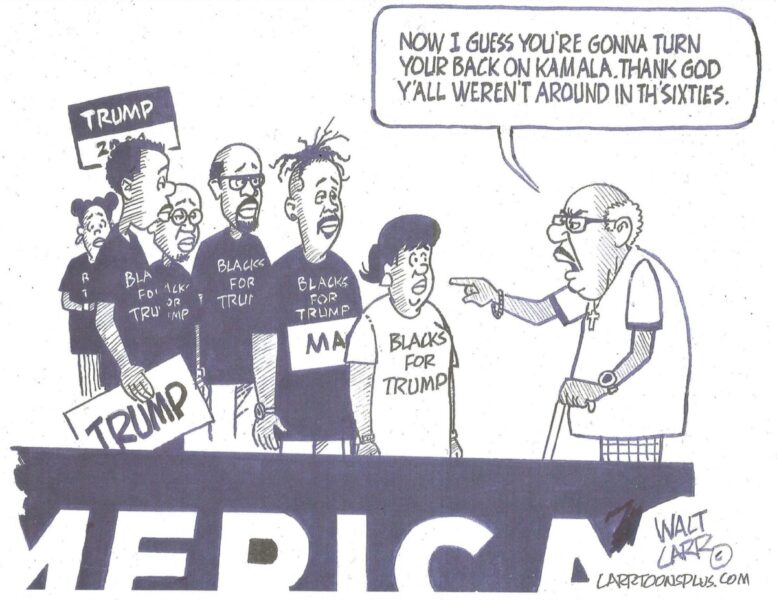
Walt Carr, who turns 92 on Aug. 26, is still drawing political cartoons. (Credit: Walt Carr)
By 4:05 p.m., ebony.com and theRoot.com had posted staff-written stories, though not the National Newspaper Publishers Association, which services Black-owned newspapers.
Most of the initial coverage was devoted to props to Biden for his decision, with Democratic party strategist Donna Brazile declaring on ABC how proud she was of his courage, but the journalists, in recording the reaction of various Democratic leaders, also noted which of them went on to endorse Harris, and which did not.
Issues of race and gender were foremost for many. An MSNBC panel consisted of four women — Rachel Maddow, Reid, Jen Psaki and Nicolle Wallace.
Biden’s decision was viewed through the lens of his desire to save democracy from Trump, but MSNBC host Al Sharpton also pointed out that “he opened the door for a Black president” not once, with Obama, but now potentially for Harris.
Historian Michael Beschloss, who said he was working on a book on race and American presidents, called Biden “a huge towering figure in the history of world democracy.”
On CNN, Black commentators Bakari Sellers and Van Jones, along with others, cited the “new energy” they were picking up among Democrats. However, Sellers also reported skepticism among some African Americans who told him, “They’re not going to elect a Black woman.” Thus, the need to “throw all caution to the winds” in campaigning. CNN analyst David Axelrod, a former Obama aide, stressed the importance of gaining support beyond the Democratic base.
In print, columnists from other groups weighed in.
“Donald Trump is the first convicted felon nominated by a major party,” LZ Granderson, who is African American, wrote in the Los Angeles Times. “He has been found liable for sexual abuse and business fraud. For stretches during his presidency, he had trouble denouncing white supremacy. Four years ago at this time, unemployment was over 10% and we were struggling to find hand sanitizer and toilet paper in our stores.”
Helen Ubiñas, who is Latina, wrote in the Philadelphia Inquirer, “We better win — and in order to do that we better get it together fast. That includes people who say the right things in mixed company but do the wrong things when it comes time to vote.
“Yeah, I’m talking to nearly half of this country’s white women who voted for Trump in both elections.”
Ubiñas’ column was headlined, “We either want a dictator or a democracy. With Biden out, we have one chance to get this right.”
In a July 2023 interview with the ICT Newscast, Vice President Harris spoke about issues from the missing and murdered to judicial appointments. (Credit: ICT/YouTube)
For ICT, formerly Indian Country Today, Editor at Large Mark Trahant wrote, “The Biden administration’s record in Indian Country will be hard to match. He appointed more Native Americans to office than any of his predecessors, by a long shot. His administration invested more capital in tribal nations than any other administration ever. And again by a long shot. He has reshaped the federal judiciary with more Native American judges (although there is still a lot of work to do in order to reach parity with the population).”
Trahant also wrote, “What should tribal nations expect from a Kamala Harris administration? There is a lot to work with. As California’s attorney general she was perceived as being more focused on states than tribes. But that has largely shifted. She has very much been a part of the Biden administration’s focus on representation and investment.
“I think it’s also important to note that Harris is the only sitting vice president to ever sit down with ICT. In that interview with Aliyah Chavez, she talked about her views as a prosecutor on the missing and murdered Indigenous people crisis.”
In the Advocate, which reports on LGBTQ+ issues, Trudy Ring wrote of Harris, “If she wins in November, Harris will make history as both the first woman to be president and first woman of color in the nation’s highest office — the first Black woman and the first one of South Asian heritage. She’d also most likely be the most pro-LGBTQ+ president.”
- Perry Bacon Jr., Washington Post: Harris has not been a great politician. But hopefully she’s good enough.
- Mary C. Curtis, Roll Call: Respect for difference is more important than an appeal for nonexistent unity
- Amber Ferguson and Ben Brasch, Washington Post: After Biden’s exit, Zoom led by Black women mobilized 44,000 for Harris (July 22)
- Emil Guillermo, Asian American Legal Defense and Education Fund: Unity? AAPIs all but invisible as Vance emerges after three days of Trump on mute
- Maggie Haberman and Jonathan Swan, New York Times: Trump Campaign Prepares Attack Plan for Harris in Case Biden Withdraws (July 20)
- Suzette Hackney, USA Today: We’re struggling: An open letter to the next Democratic nominee
- Phenix S Halley, The Root: With Biden Dropping Out of the Presidential Race and Kamala Harris Likely Entering, One of These People Could Be Her Running Mate
- Alex Isenstadt, Natalie Allison and Meridith McGraw, Politico: Trump allies launch attacks on Harris in battleground states and beyond
- Peter Jamison, Washington Post: Kamala Harris has a career of comebacks. She has 107 days to do it again.
- Tom Jones, Poynter Institute: ‘A political earthquake’: Media coverage of Joe Biden dropping out of the presidential race (July 22)
- Katherine Knott, Inside Higher Ed: Biden, an Education President: He stepped down from the Democratic ticket Sunday. What will happen to his ambitious plans to reshape higher education and fix the student loan system?
- Michele Norris, Washington Post: Careful, Democrats. Cast Harris aside at your peril.
- Lydia Polgreen, New York Times: If Kamala Harris Is a D.E.I. Candidate, So Is JD Vance
- Rebecca Robbins, New York Times: Judge Rejects Bid to Dismiss Trump Libel Suit Against Pulitzer Board
- Eugene Robinson, Washington Post: Biden did his part. Now here’s the next step.
- Ray Suarez, American Communities Project: More in Common Than You Think
- William H. Turner, Lexington (Ky.) Herald-Leader: In his tales of Appalachian life, JD Vance ignores people like me (July 22)
- Sakshi Venkatraman, NBC News: Usha Vance’s RNC speech against backdrop of ‘mass deportation’ signs draws claims of hypocrisy
- Adrian Walker, Boston Globe: President Biden makes decision that is best for the country
‘Press Freedom in Black-Run Countries’ Set Aug. 1
Please click here for larger image of flier/poster
 The Journal-ismsRadio Ink: Ethics Inquiry Urged for FCC’s Carr Over Project 2025 Participation Roundtable will hold a panel discussion, “Press Freedom in Black-Run Countries,” in Chicago while the National Association of Black Journalists convention takes place in that city.
The Journal-ismsRadio Ink: Ethics Inquiry Urged for FCC’s Carr Over Project 2025 Participation Roundtable will hold a panel discussion, “Press Freedom in Black-Run Countries,” in Chicago while the National Association of Black Journalists convention takes place in that city.
The Roundtable will not officially be part of the convention; instead it will be hosted at the offices of Chicago Public Media on Thursday, Aug. 1, from 9 a.m. to 11 a.m. Central time. Chicago Public Media offices are on Navy Pier, at 848 East Grand Ave., Chicago, Ill., 60611.
The event is co-hosted by the NABJ Global Journalism Task Force. Those who are not in Chicago may join by Zoom. All are invited. To register for either in-person, Zoom or to watch on Facebook, please email blackruncountries (at) gmail.com.
After Black French journalist Olivier Dubois was held hostage last year for 711 days in Mali, West Africa, the press-freedom group Reporters Without Borders said, “To be a journalist in the Sahel means enduring the growing presence of radical armed groups who do not hesitate to kill reporters or kidnap them and use them as bargaining chips,” and more.
More recently, the rising authoritarianism around the world includes Africa as well as the United States. That most often means finding a way to tamp down, even silence, the press. Haiti’s existential crisis has been extensively reported, less so the state of journalism there and in the rest of the Caribbean.
Discussions about the African diaspora most often do not include press freedom, and journalism sessions in the U.S. about Black people often do not include a global view.
Panelists:
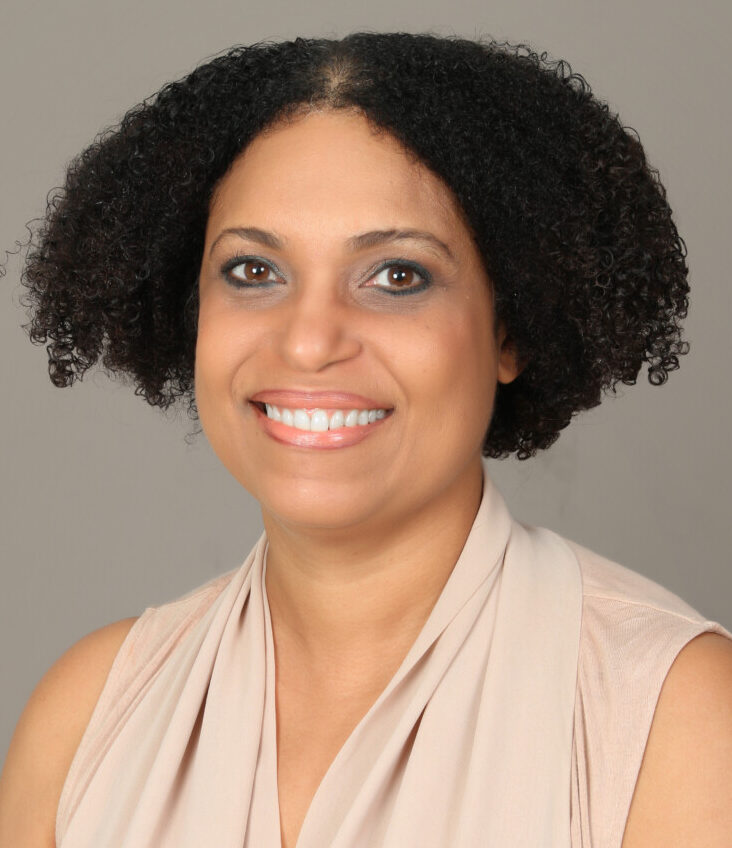 Zahra Burton, 18 Degrees North, Jamaica; Global Reporters for the Caribbean – founder and principal, Kingston, Jamaica
Zahra Burton, 18 Degrees North, Jamaica; Global Reporters for the Caribbean – founder and principal, Kingston, Jamaica
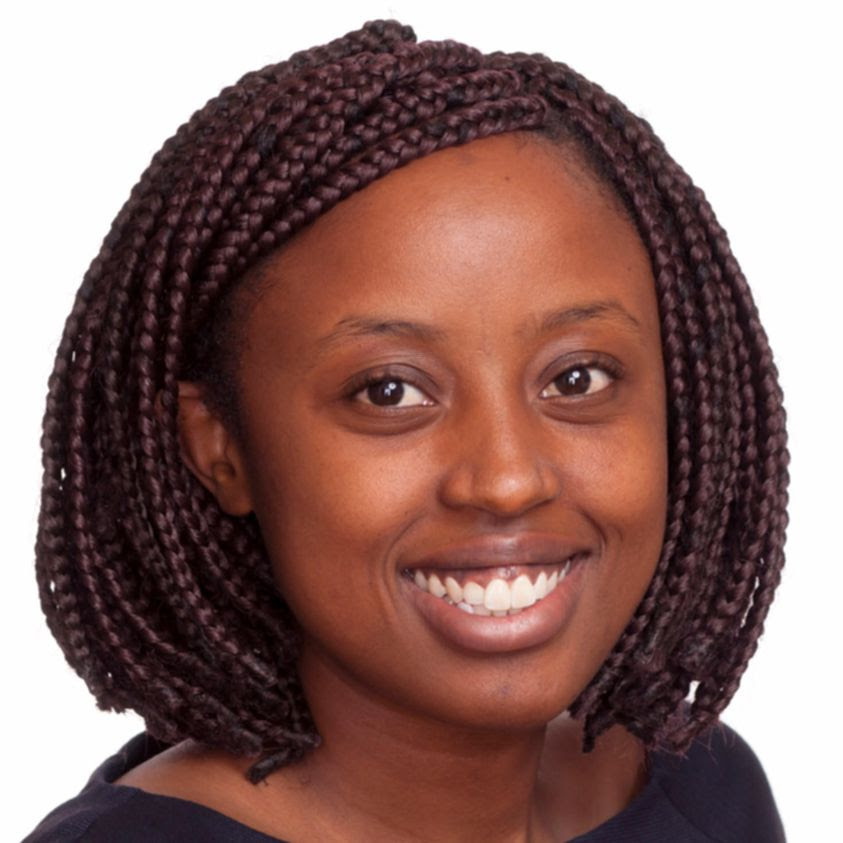 Muthoki Mumo, Committee to Protect Journalists – Africa program coordinator, based in Nairobi, Kenya
Muthoki Mumo, Committee to Protect Journalists – Africa program coordinator, based in Nairobi, Kenya
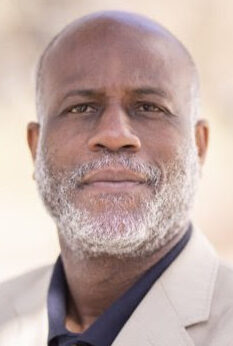 Garry Pierre-Pierre, Haitian Times – founder and publisher, Brooklyn, N.Y.
Garry Pierre-Pierre, Haitian Times – founder and publisher, Brooklyn, N.Y.
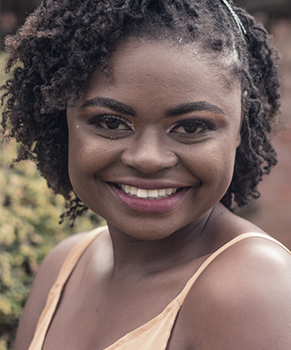 Nompilo Simanje, International Press Institute — Africa advocacy and partnerships lead, Bulawayo, Zimbabwe
Nompilo Simanje, International Press Institute — Africa advocacy and partnerships lead, Bulawayo, Zimbabwe
 John Yearwood, Politico – editorial director – diversity and culture; formerly global chair of the Vienna, Austria-based International Press Institute and world editor of the Miami Herald
John Yearwood, Politico – editorial director – diversity and culture; formerly global chair of the Vienna, Austria-based International Press Institute and world editor of the Miami Herald
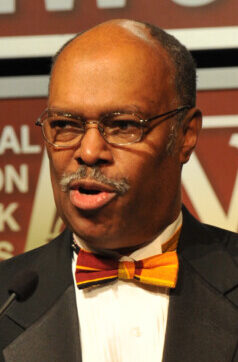 Richard Prince, Journal-isms columnist, moderator
Richard Prince, Journal-isms columnist, moderator
It’s not too early to RSVP to < blackruncountries (at) gmail.com > whether or not you will be at the NABJ convention.
Update:
(Credit: Wallace House/YouTube)
Exiled Haitian journalist, NABJ honoree, joining Roundtable
Roberson Alphonse, this year’s recipient of the Percy Qoboza Award from the National Association of Black Journalists, has agreed to join the special Journal-isms Roundtable Aug. 1 in Chicago on “Press Freedom in Black-Run Countries.”
“I’m honored by your invitation to join that panel,” Alphonse messaged. Commitment to “ringing the bell on press freedom, democracy in this era of disinformation, populism and the rise of authoritarian regimes is priceless. We have to deal with those issues while our profession is facing [an] existential crisis. We are in surviving mode in Haiti. It’s almost the same for local press here in the US.”
NABJ said, “This award recognizes a foreign journalist who has done extraordinary work while overcoming tremendous obstacles that contribute to the enrichment, understanding, or advancement of people or issues in the African Diaspora.
“Alphonse, one of Haiti’s most respected investigative journalists, is not only a fearless journalist but a brave soul. He survived a shooting attack in 2022 that left him wounded in both arms on his way to work at a Port-au-Prince radio station. Now a University of Michigan Knight-Wallace Fellow, he boldly continues to heal and continues his work as the News Editor for Le Nouvelliste and Information Director at Magik9.”
—
You can see a video detailing Alphonse’s story and journey to Wallace House here.
- Ajabu Adolphe, New Humanitarian: How Congolese journalists covering the M23 war are being forced to pick sides
- Committee to Protect Journalists: Three journalists disappear, 3 media outlets suspended in Burkina Faso
- Committee to Protect Journalists: Malian journalist Yeri Bocoum missing after covering banned protest (June 27)
- Global Press Journal: ‘Unwilling to Stop’: What it Takes to Be a Local Reporter in Haiti
- Mark Heywood, Daily Maverick, South Africa: The defence of journalism and journalists is a social justice issue (June 30)
- International Federation of Journalists: Kenya: Journalists attacked by police during protest in Nairobi
- Media Foundation for West Africa: Ghana’s ruling party’s thugs invade radio station, attack rival faction communicator (June 17)
- Media Foundation for West Africa: Liberia Stands at Crossroads: CEMESP [Center for Media Studies and Peacebuilding] issues call to action on World Press Freedom Day (May 6)
- Premium Times and Agency Report, Lagos, Nigeria: Nigerian govt threatens to jail whistleblowers who leak govt documents
- Radio Amazuj: Sudanese journalist released after detention in Shendi
- Reporters Without Borders: More than 70 obstacles to reporters’ work in three years: journalism at a crossroads in Senegal (June 6)
To subscribe at no cost, please send an email to journal-isms+subscribe@groups.io and say who you are.
Facebook users: “Like” “Richard Prince’s Journal-isms” on Facebook.
Follow Richard Prince on Twitter @princeeditor
Richard Prince’s Journal-isms originates from Washington. It began in print before most of us knew what the internet was, and it would like to be referred to as a “column.” Any views expressed in the column are those of the person or organization quoted and not those of any other entity. Send tips, comments and concerns to Richard Prince at journal-isms+owner@
View previous columns (after Feb. 13, 2016).
View previous columns (before Feb. 13, 2016)
- Diversity’s Greatest Hits, 2018 (Jan. 4, 2019)
- Book Notes: Is Taking a Knee Really All That? (Dec. 20, 2018)
- Book Notes: Challenging ’45’ and Proudly Telling the Story (Dec. 18, 2018)
- Book Notes: Get Down With the Legends! (Dec. 11, 2018)
- Journalist Richard Prince w/Joe Madison (Sirius XM, April 18, 2018) (podcast)
- Richard Prince (journalist) (Wikipedia entry)
- February 2018 Podcast: Richard “Dick” Prince on the need for newsroom diversity (Gabriel Greschler, Student Press Law Center, Feb. 26, 2018)
- An advocate for diversity in the media is still pressing for representation, (Courtland Milloy, Washington Post, Nov. 28, 2017)
- Morgan Global Journalism Review: Journal-isms Journeys On (Aug. 31, 2017)
- Journal-isms’ Richard Prince Wants Your Ideas (FishbowlDC, Feb. 26, 2016)
- Richard Prince with Charlayne Hunter-Gault, “PBS NewsHour,” “What stagnant diversity means for America’s newsrooms” (Dec. 15, 2015)
- Book Notes: Journalists Follow Their Passions
- Book Notes: Journalists Who Rocked Their World
- Book Notes: Hands Up! Read This!
- Book Notes: New Cosby Bio Looks Like a Best-Seller
- Journo-diversity advocate turns attention to Ezra Klein project (Erik Wemple, Washington Post, March 5, 2014)

